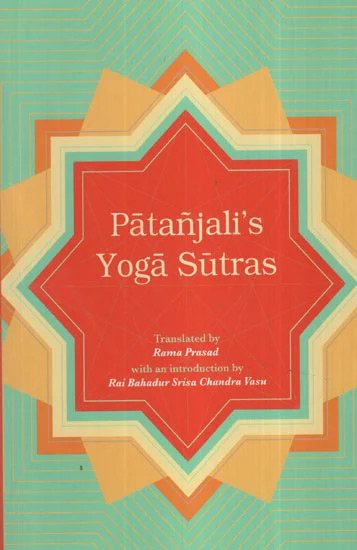Yoga-sutras (with Vyasa and Vachaspati Mishra)
by Rama Prasada | 1924 | 154,800 words | ISBN-10: 9381406863 | ISBN-13: 9789381406861
The Yoga-Sutra 4.6, English translation with Commentaries. The Yoga Sutras are an ancient collection of Sanskrit texts dating from 500 BCE dealing with Yoga and Meditation in four books. It deals with topics such as Samadhi (meditative absorption), Sadhana (Yoga practice), Vibhuti (powers or Siddhis), Kaivaly (isolation) and Moksha (liberation).
Sūtra 4.6
Sanskrit text, Unicode transliteration and English translation of Sūtra 4.6:
तत्र ध्यानजम् अनाशयम् ॥ ४.६ ॥
tatra dhyānajam anāśayam || 4.6 ||
tatra—of these. dhyānajam—the meditation born. anāśayam—is free from the vehicles.
6. Of these the meditation-born is free-from-the-vehicles.—166.
The Sankhya-pravachana commentary of Vyasa
[English translation of the 7th century commentary by Vyāsa called the Sāṅkhya-pravacana, Vyāsabhāṣya or Yogabhāṣya]
[Sanskrit text for commentary available]
The created mind is five-fold, as said:—‘The attainments are by birth, drugs, incantations, purificatory action or trance.’ Of these the one that is born of meditation is alone free from the vehicles. It does not possess the vehicles, which cause the manifestation of desire, &c. Thence is there no coming into relationship with virtue and vice, inasmuch as the afflictions of a Yogī have ceased to exist.—166.
The Gloss of Vachaspati Mishra
[English translation of the 9th century Tattvavaiśāradī by Vācaspatimiśra]
Now he determines the mind, which tends to emancipation, out of the five descriptions of the minds of the perfected ones (siddhas), which have been described ‘The meditation-born is free from the vehicles.’ The vehicles are those that take possession of the mind as the impressions of the actions and the impressions of the afflictions. The mind free from the vehicles is that in which these do not exist. The meaning is that it becomes inclined towards emancipation. Inasmuch as there does not exist in this condition the manifestation of desires, &c., there is no coming into relationship with virtue and vice. But then why do not desires, &c., come into manifestation? For this reason ho says:—‘Because the afflictions of a Yogī have ceased to exist.’—6.
